Born: Gleiwitz, Upper Silesia, Germany, 30 November 1898
Profession in country of origin: Labourer
Arrived in Britain as a refugee from Germany on 1 August 1939
Documents
Male enemy alien - Exemption from internment - Refugee Surname: Michelson Forename: Siegfried Alias: - Date and place of birth: 30/11/1898 in Gleiwitz Nationality: Stateless Police Regn. Cert. No.: 712 607 Home Office ref: C 3681 Address: Kitchener camp, Richborough, Sandwich, Kent Normal occupation: Labourer Present occupation: Name and address of employer: - Decision of tribunal: Exempted "c" Date 18.10.1939 Whether exempted from Article 6(A): Yes [later crossed out in red] Whether desires to be repatriated: No Tribunal District: Richborough Camp Tribunal 3
Source: National Archives, Home Office: Aliens Department: Internees Index, 1939-1947.
Editor’s note: We are not allowed to reproduce National Archives (UK) images, but we are permitted to reproduce the material from them, as shown above.
To view the following images, please click to open in enlarged full form
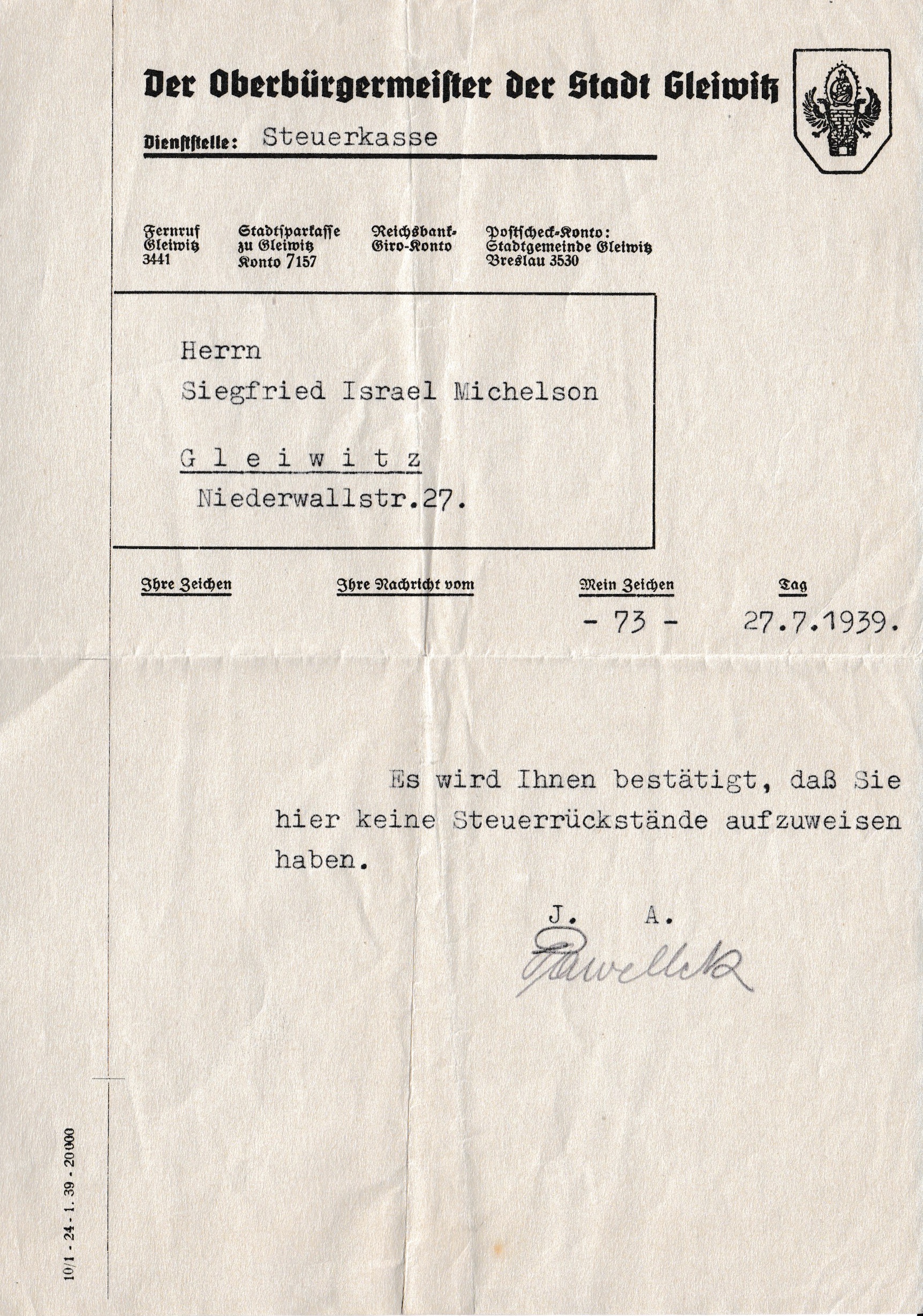
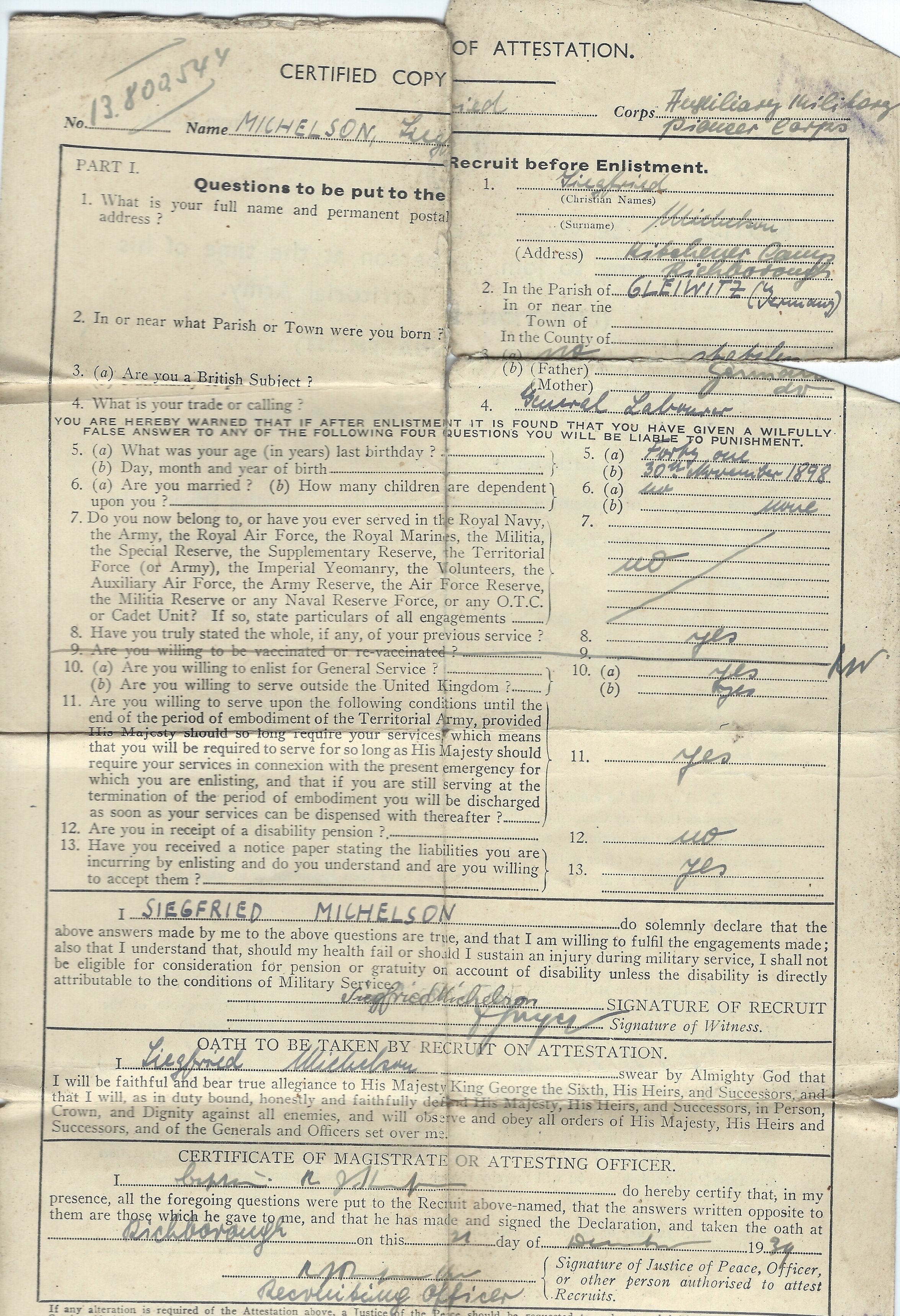
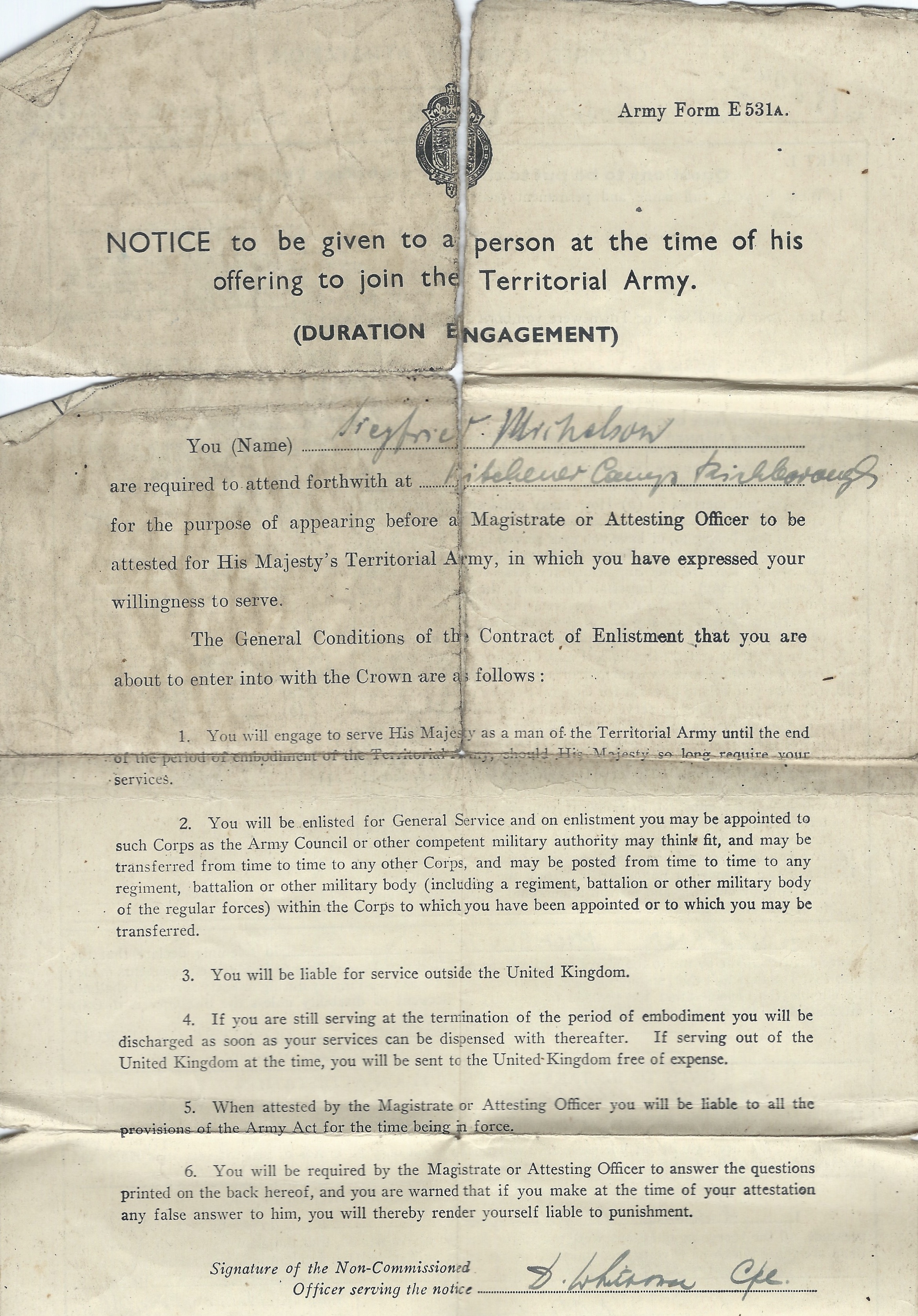
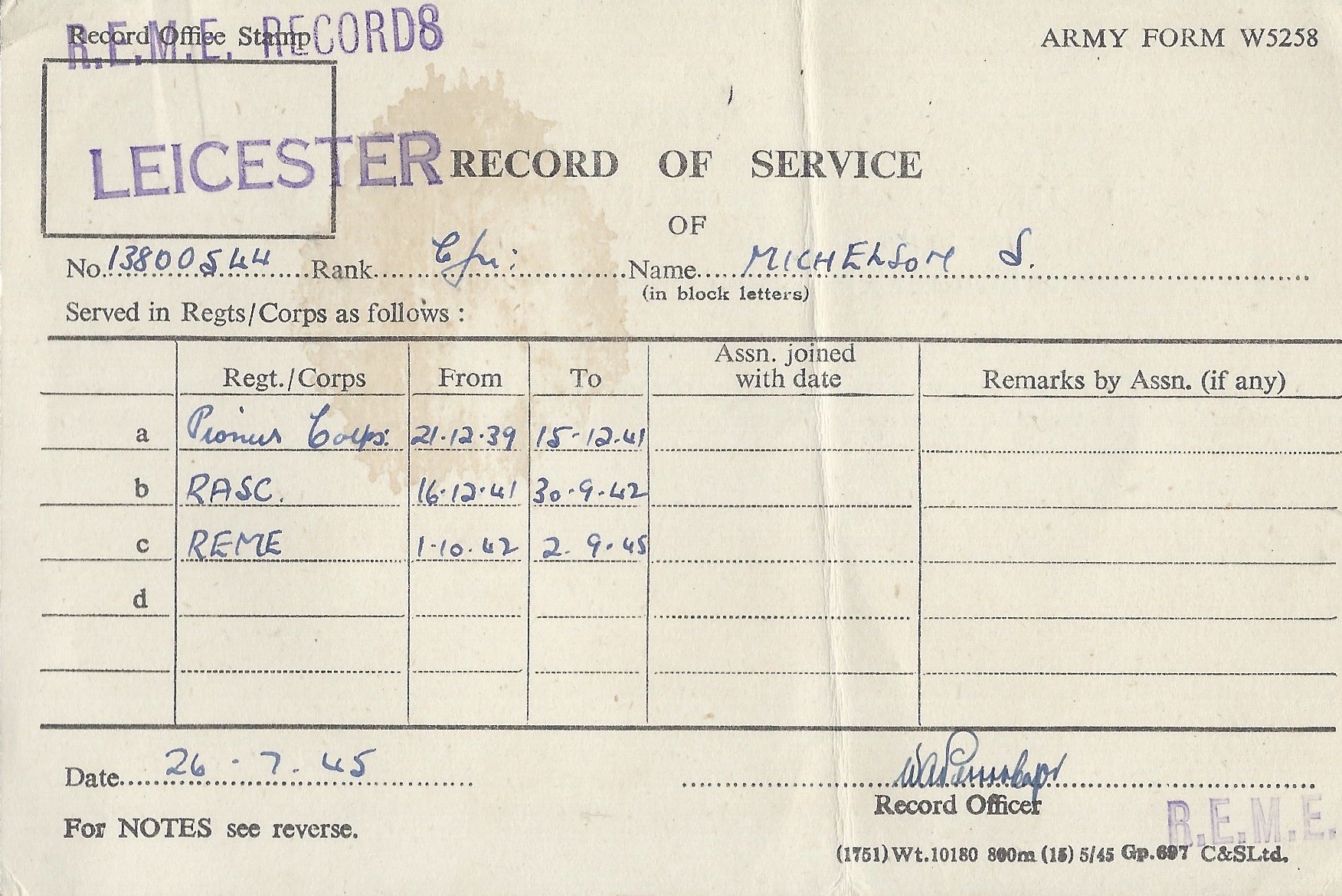
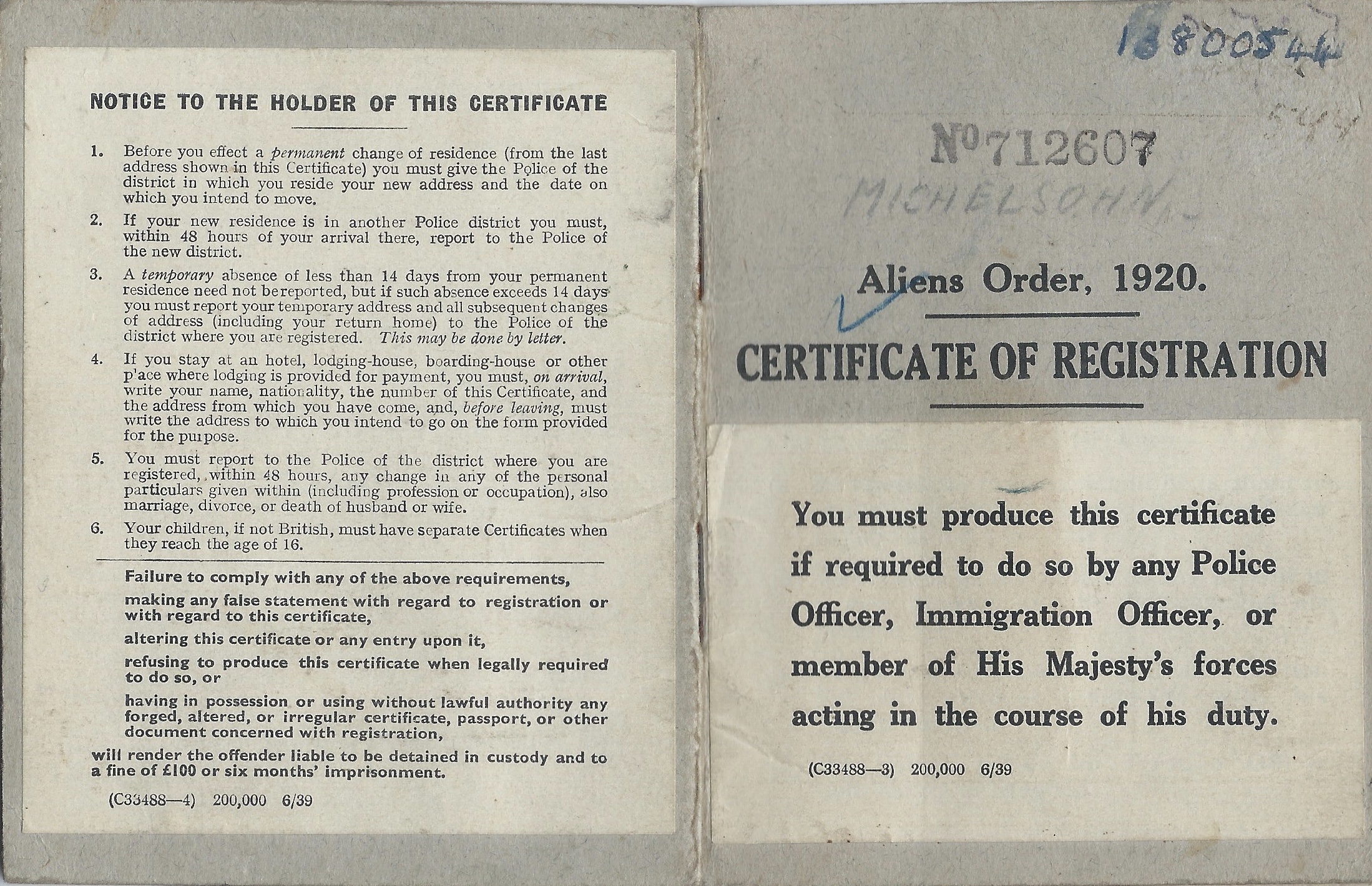
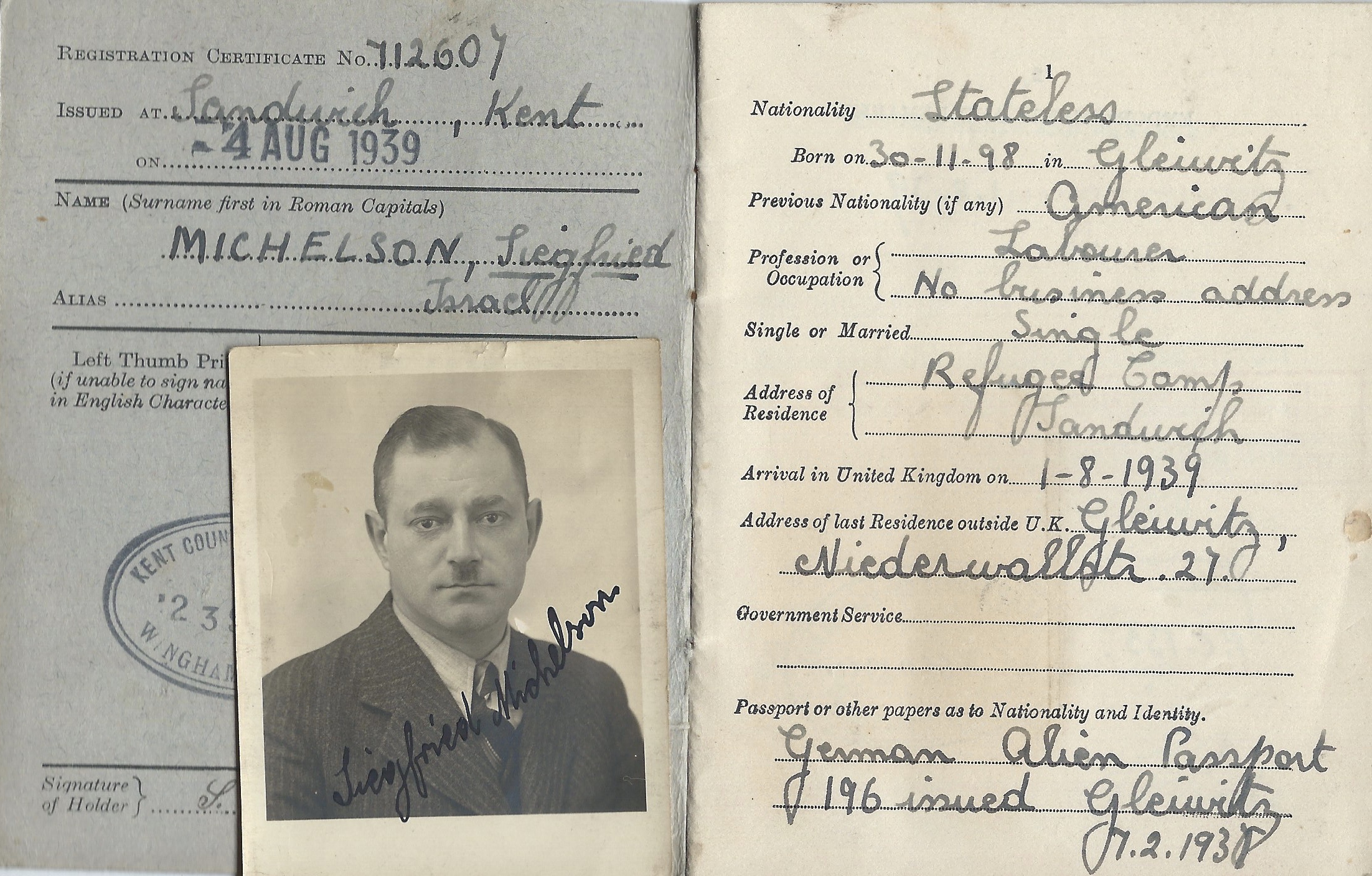
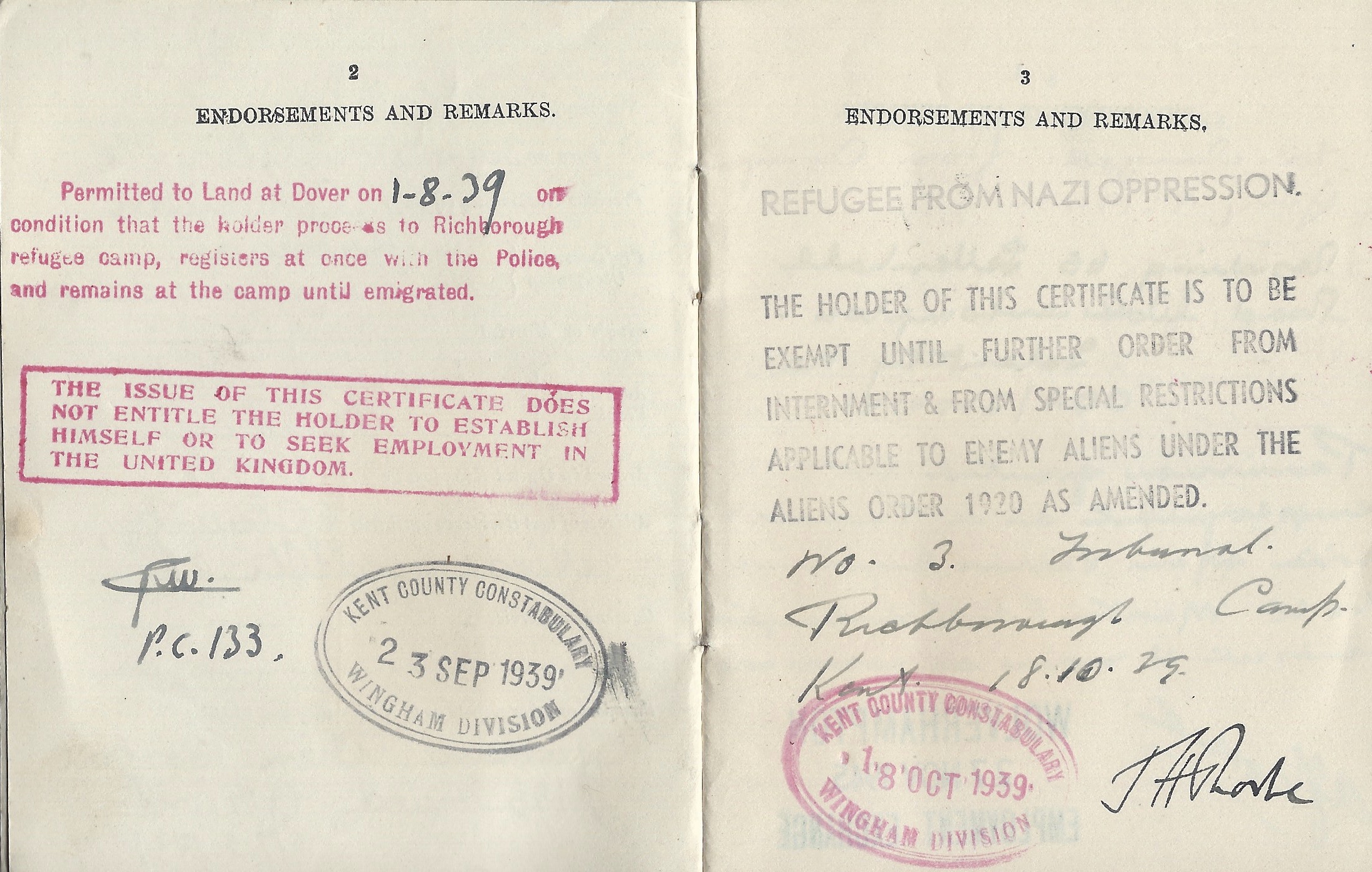
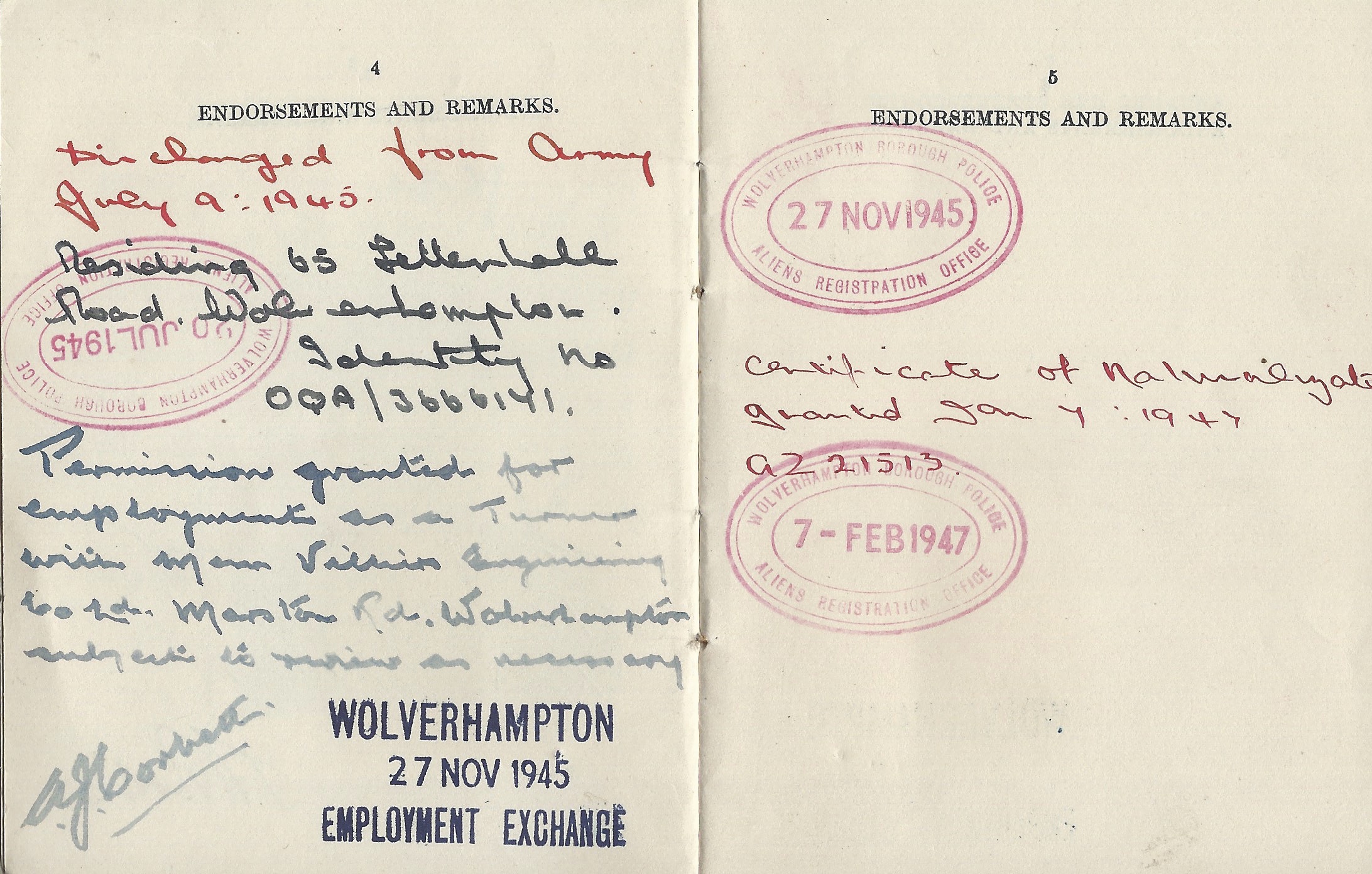
To view the following images, please click to open in enlarged full form
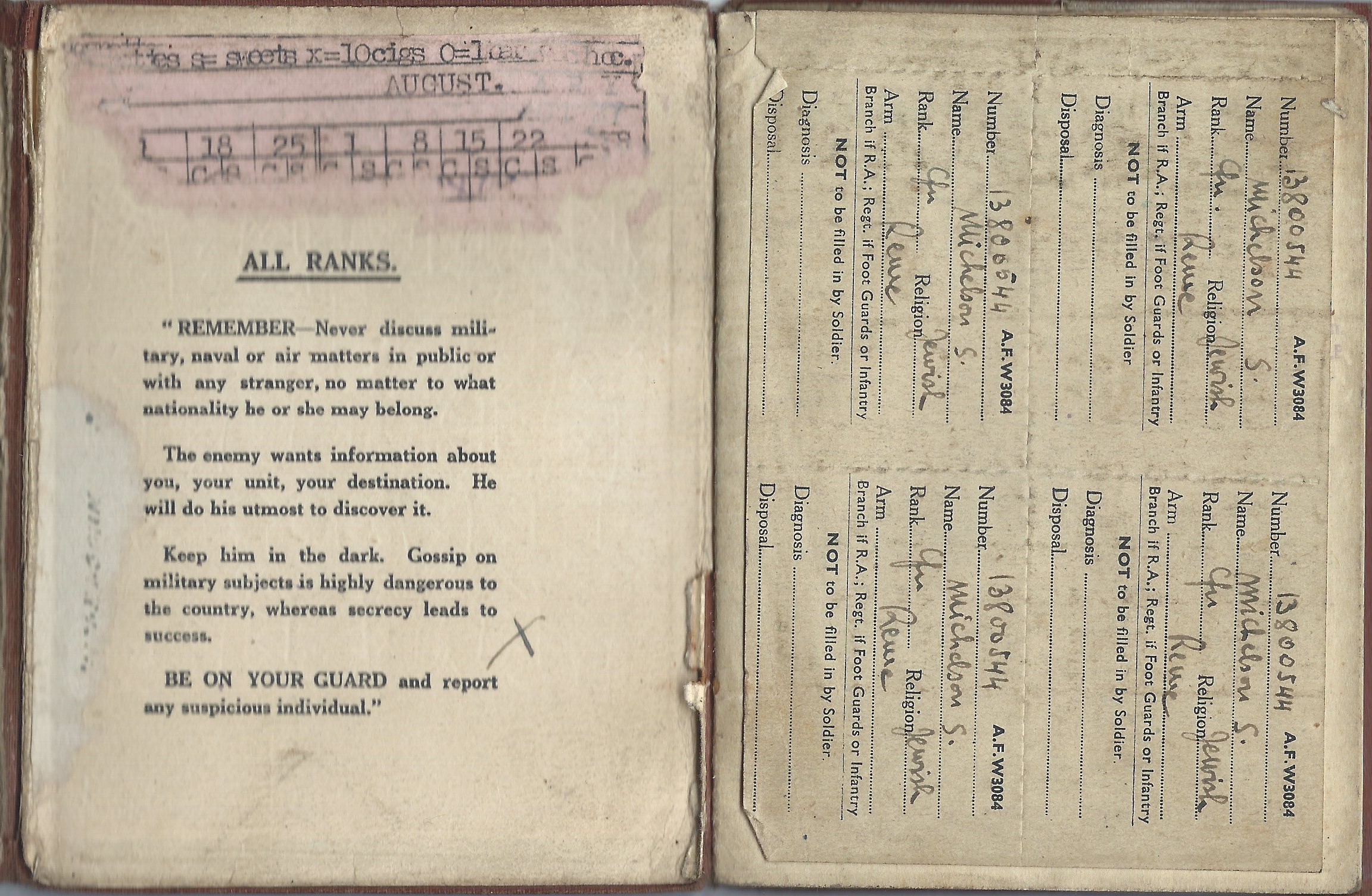
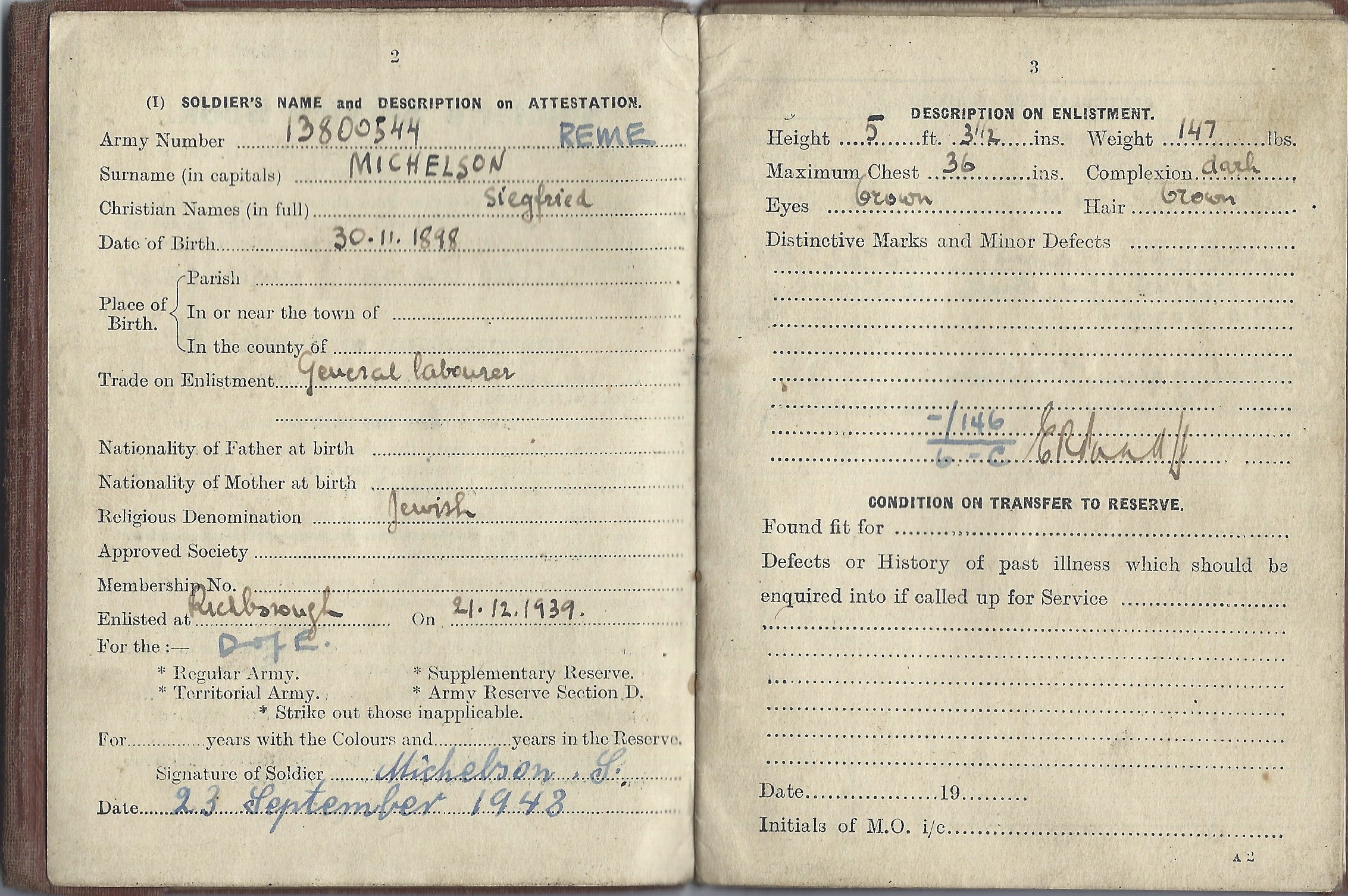
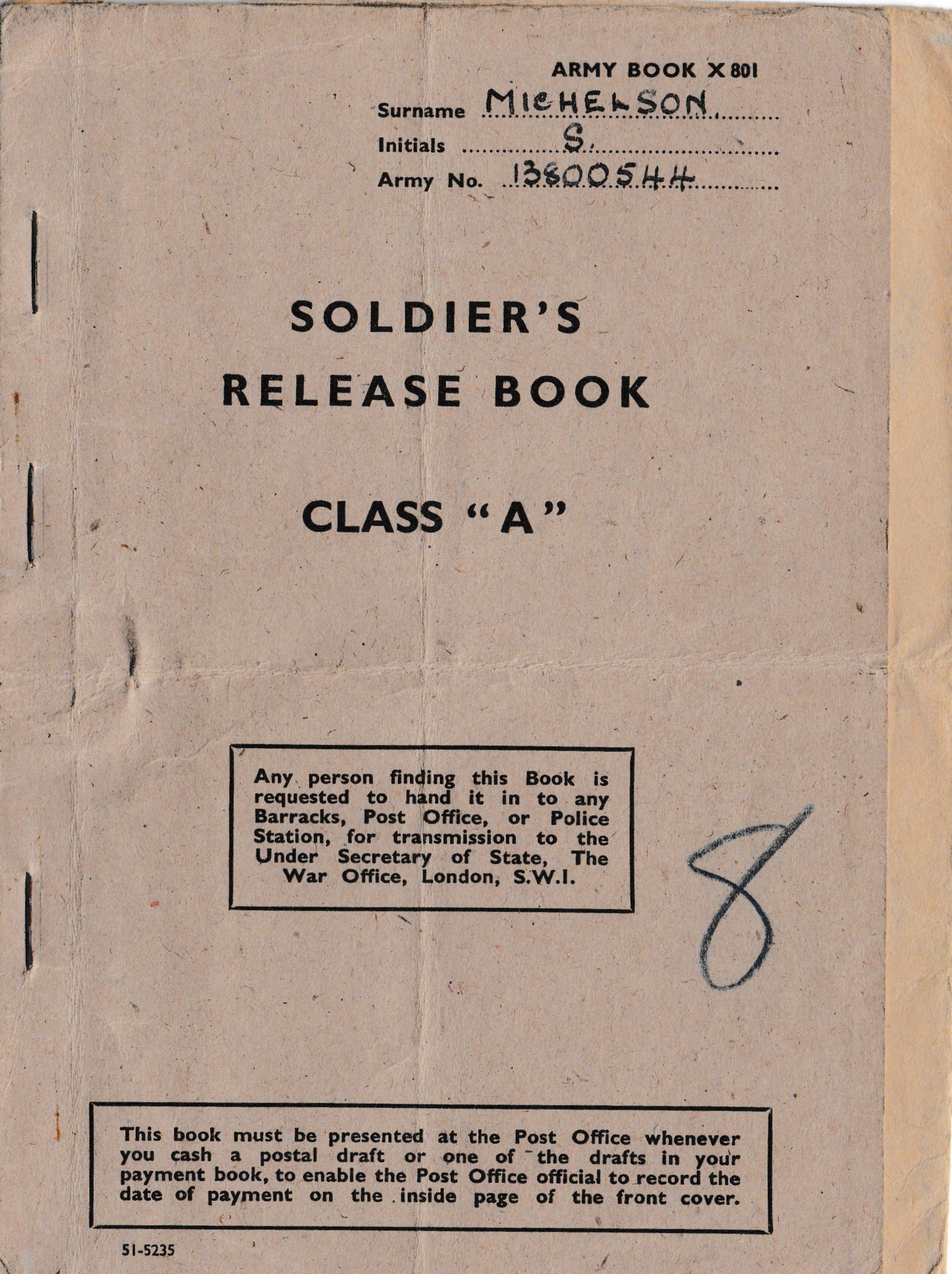
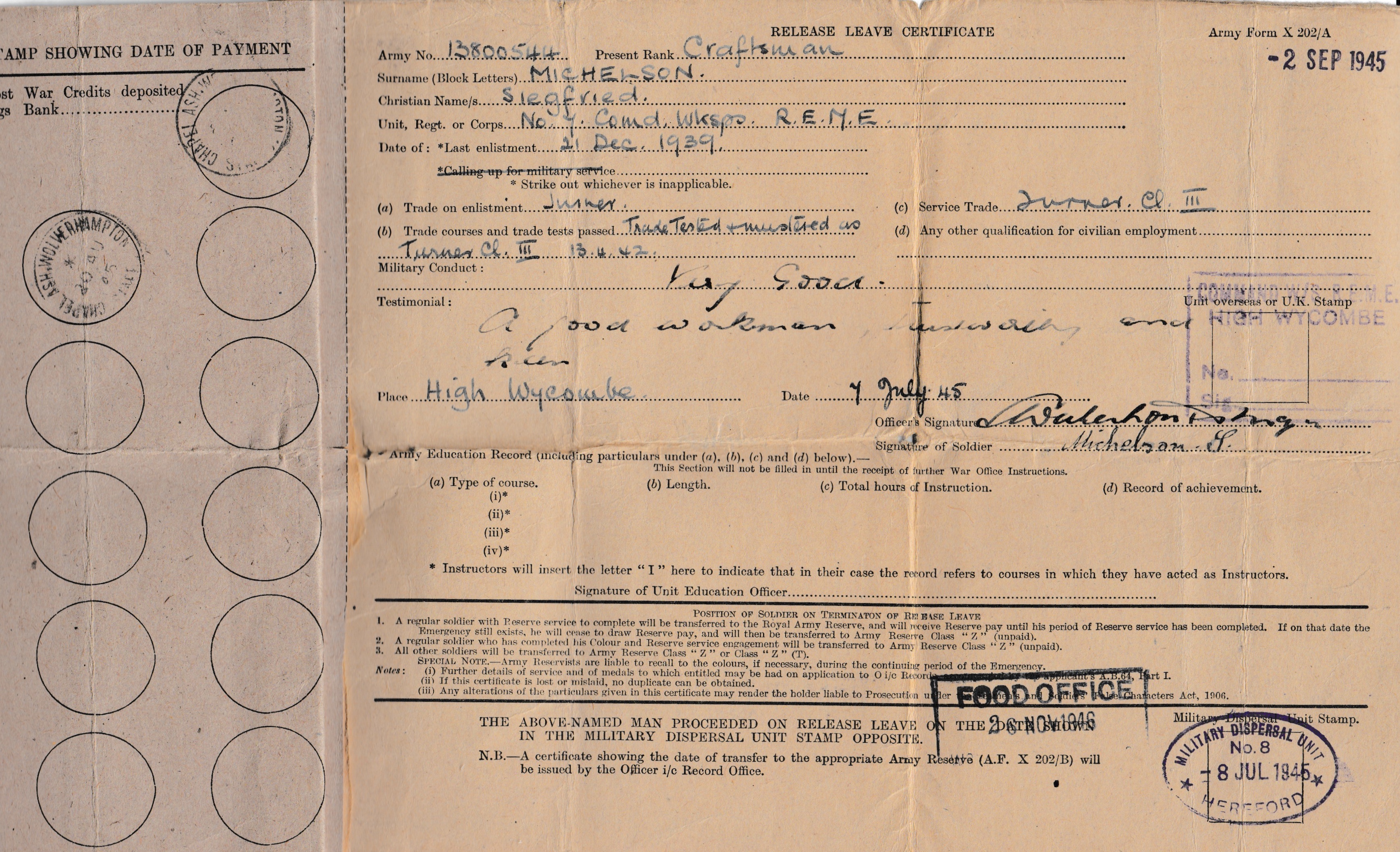
Documents submitted by Leslie Brown for his uncle, Siegfried Michelson
Memories
Dear Mrs Ungerson,
I was at the talk you gave in December at Limmud on the Kitchener Camp at Sandwich.
This was a revelation to me as in March 1941 my mother’s sister (Selma) married someone who had been at the camp.
One of the parts I found most interesting in your talk was that when the camp was set up, the organisers were looking for artisans and labourers.
My family used to say that my uncle (Siegfried Michelson) had been a grave digger when he worked in central Europe (but I do not really know if this was true); I also remember them saying that he ended up in a German internment camp prior to the Second World War.
My father was a wallpaper merchant in the Midlands and after the war my Aunt and Uncle obtained supplies through him and started selling wallpaper and other decorating material at a shop in Dudley and from (I think) two different market stalls.
Initially they lived at 65, Tettenhall Road, Wolverhampton. This was a house on several floors owned by my father, which housed a number of members of my immediate family (and others) who he had “guaranteed for” so that they were able to leave Germany in around 1937. (He married my mother in 1936.)
Amongst these was my mother’s father Moritz Abraham (and his wife Auguste). He has the notable distinction of having been interned by the British authorities in both the 1stand 2nd world wars.
Inspired by your talk I have scanned in some of the material I have about Siegfried, which is still in my possession.
Best wishes and thank you for coming to Limmud and giving your talk.
Leslie BrownPS I remember members of the family saying that his luggage went ahead of him to Shanghai, but he never made it that far.
And while I was still at university I was the principal male mourner at his funeral. There was a small group of us (around 8 or 9) at the Jewish cemetery in Wolverhampton and the ropes got stuck between the ground and the coffin. As it was raining, the male mourners wanted the ropes to be chucked into the grave with the coffin. But the Rabbi (it was a very small community) wanted to save the ropes.
The Rabbi won the day and the grave diggers pulled the coffin out and re-dug the grave.If he really had been a grave digger, I have often wondered what he must have thought about the event, or whether it was some special sign from God to tell us all something about him; that with his experience he could have done a much, much better job.
An email sent from Siegfried’s nephew, Leslie, to Kitchener author Clare Ungerson, following a talk she gave on Kitchener camp in 2016
Photographs
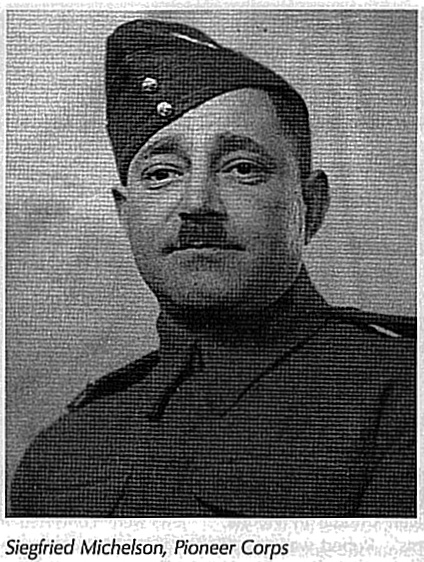
The photograph above is reproduced here by kind permission of Helen Fry. It features in her book, Jews in North Devon during the Second World War: The escape from Nazi Germany and the establishment of the Pioneer Corps (Halsgrove 2005)
